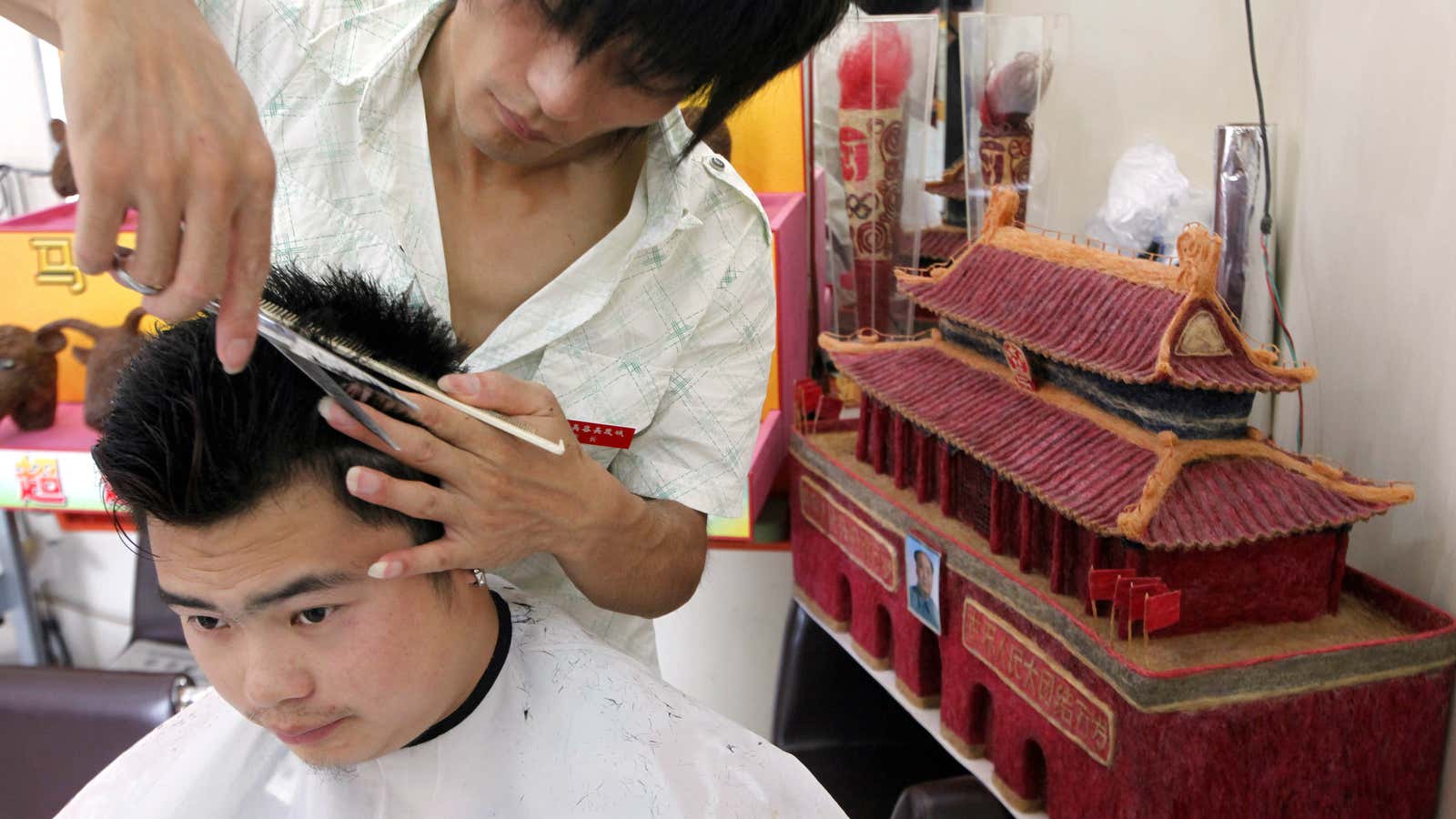Movie tickets. Lunch delivery. Haircuts. Babysitting. Yoga classes. Coupons. Home repairs. It’s entirely possible for Chinese consumers to fill out a day’s worth of errands, entertainment, and eating using a single company’s apps.
Thanks to them, Meituan Dianping—an e-commerce company that specializes in selling an enormous variety of services—could be heading for one of the year’s blockbuster IPOs. The company filed for an IPO (pdf) Monday (June 25) with the Hong Kong Stock Exchange.
While Meituan didn’t say in its filing how much it plans to raise, Bloomberg reports the company is targeting a $6 billion offering at a $60 billion market cap. That would mark a doubling of its valuation since October 2017, and put it in the ballpark of the upcoming IPO of Xiaomi, the Chinese smartphone maker, also in Hong Kong. Much like Xiaomi, whose business model looks like a mash-up of a couple different companies, Meituan has evolved into a Chinese tech giant with no close Silicon Valley equivalent.
Meituan is the product of two other Chinese startups—Groupon-like Meituan, founded in 2010, and Dianping, which was founded in 2003 as a Yelp-esque site for restaurant listings and reviews.
As a venture-capital boom hit China, both companies branched out into what came to be knownas the “online-to-offline” space—a term generally used to refer to online purchases of experiences like meals and massages. A cash-burning war between the two companies ensued, with e-commerce giant Alibaba backing Meituan and social media behemoth Tencent backing Dianping. In 2015, Dianping and Meituan merged to create a $15 billion company. Meituan’s prospectus show that Tencent retains a roughly 20% stake in the company, while Alibaba, which owns Meituan’s biggest competitor in food delivery, holds just around 1.5% (.pdf pages 194 and 137).
Since the merger, Meituan has evolved into an amalgam of a number of popular global apps, plus much more. Like Yelp, it’s a listings and ratings site for small businesses. It offers restaurant bookings like OpenTable and delivers food like Postmates. Like Expedia, it sells flight tickets and hotel rooms. It recently launched an Uber-esque ride-hailing service, which will complement its acquisition of bike-sharing company Mobike. Users can even book babysitters, housekeepers, and wedding planners through Meituan. The company said the gross transaction volume on its apps reached $55 billion last year.
A typical Meituan user could have a day like this: Open Meituan to see which malls are nearby. Spot one with a deal on jackets from Uniqlo. Ride a Mobike to the mall. Once at Uniqlo, purchase the jacket using the app’s promotion. Next, book a table at a sushi restaurant in the food court. After lunch, schedule an appointment with a hair stylist. After the haircut, purchase tickets for an evening screening of Jurassic World: Fallen Kingdom.
Meituan’s revenue has soared over 750% between 2015 and 2017 to hit 33.9 billion yuan (about $5.2 billion). Operating losses have narrowed 55% to 3.8 billion yuan ($587 million) over the same period. The company booked a net loss of 19 billion yuan ($2.9 billion) for 2017.
Whether it can close the gap will depend in part on whether it can best its rivals. While Meituan is China’s largest one-stop-shop for all things to do with services, other companies compete with it in specific sectors—Alibaba’s Ele.me is fighting it in food delivery, CTrip fights with it in travel bookings, and Ofo competes with Mobike in bike-sharing.
—Ziyi Tang contributed to this post.
